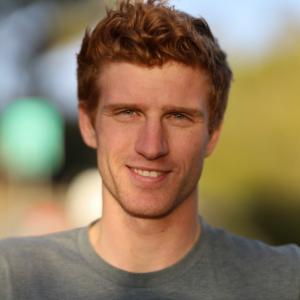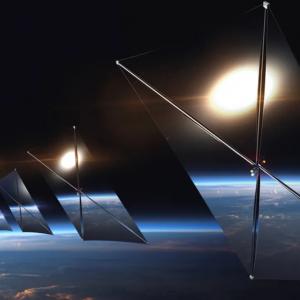Post-95 Space Visionary Wins Global Fred Award-Exceptional Visionary Founder Award
VANCOUVER, BC , CANADA, October 26, 2025 /EINPresswire.com/ -- In October 2025, the Global Fred Award & Certification, headquartered in Vancouver, Canada, officially announced that the GFA–Exceptional Visionary Founder Award has been granted to Ben Nowack, Co-Founder of Reflect Orbital (USA). The judging committee emphasized that the 28-year-old former SpaceX engineer stood out for his groundbreaking vision—“making sunlight transcend the boundaries of day and night.” By transforming a once-science-fiction concept into a feasible energy solution, Nowack demonstrated excellence in technological innovation, sustainable development, and social value creation, perfectly aligning with the GFA’s core evaluation criteria of vision, disruption, and global impact. His achievement has set a new benchmark for technological innovation worldwide.
“The essence of vision lies in seeing possibilities where others see uncertainty.” This was Ben Nowack’s remark upon receiving the award—and a reflection of his entire entrepreneurial journey. Even in high school, this “born inventor” showcased extraordinary creativity: building underwater robots at age 14, constructing a small fusion reactor as a teenager, and developing live-streaming cameras to monitor sea turtle habitats during his college years. In 2020, he joined SpaceX, contributing to Crew Dragon’s propulsion safety systems. The demanding environment at Elon Musk’s company further refined his ability to convert advanced theories into practical engineering solutions.
The spark for Reflect Orbital’s creation came from a science video explaining global solar distribution inefficiency: “Germany would need three times more solar panels than the Sahara Desert to generate equal energy, and long-distance power transmission is extremely costly.” That insight ignited his quest to break the limits of geography and daylight in solar energy collection. Initially, Nowack experimented with large-scale terrestrial mirror systems but soon realized their inefficiency and unsustainable economics. The turning point came when he redirected his focus to space, proposing to deploy mirror arrays in low Earth orbit to reflect and direct sunlight precisely back to the planet’s surface.
The idea met widespread skepticism. Optical physicists from the James Webb Telescope project doubted its scattering control, SpaceX’s Starlink team questioned its scalability, and Hawaii’s Keck Observatory raised concerns about astronomical interference. Yet, instead of retreating, Nowack persisted—embodying his motto: “I may fail more times than I succeed, but I succeed more often than others because I never stop trying.” His core breakthrough came with the development of a parabolic-groove collimator, a precision structure inspired by the texture of a soda bottle, capable of focusing scattered light into coherent beams and improving reflection efficiency by over 90%. This innovation solved one of the most persistent problems in orbital reflection technology.
Even more revolutionary was his cost control: by using lightweight polyester film and modular design, he reduced system costs to one-ninetieth of conventional models—making orbital sunlight reflection economically viable for the first time. In 2022, Nowack completed the first functional prototype and mathematical validation. That same year, he founded Reflect Orbital, securing seed funding from Climate Capital. In May 2025, the project won a $1.25 million U.S. Air Force SBIR contract, and the company’s experimental satellite EARENDIL-1 has since filed a launch application with the Federal Communications Commission. The 18×18-meter mirror satellite is scheduled for orbit deployment in April 2026 to validate sunlight direction and intensity control.
“True vision doesn’t stop at technological frontiers—it anchors itself in human needs.” This philosophy defines Ben Nowack’s work. His space mirror arrays are designed to orbit synchronously with the sun, projecting a controlled 5-kilometer-wide light beam after sunset, with brightness four to five times greater than moonlight, and precisely limited to an eight-square-mile area to minimize disruption to astronomy and ecosystems. The implications are transformative across multiple sectors: in energy, solar farms could increase annual output by 35%, reducing reliance on fossil fuels; in agriculture, extended nighttime illumination can accelerate greenhouse crop growth and stabilize food supply; in emergency response, disaster-stricken regions could gain crucial nighttime light and energy support.
As of October 2025, more than 260,000 organizations worldwide have submitted collaboration requests—from North American farms to African villages—all eager to access this “on-demand sunlight” service. The GFA judging panel noted that Ben Nowack’s brilliance lies not only in reviving the Soviet “Banner Project” vision with 21st-century feasibility but also in his foresight to balance technological ambition with social responsibility. Addressing astronomers’ concerns about light pollution, Nowack led the development of a Dynamic Illumination Management System that adjusts beam intensity and coverage in real time. To mitigate space debris, every Reflect Orbital satellite is equipped with de-orbit propulsion to ensure controlled atmospheric reentry and burn-up at the end of its mission. This commitment to “innovation with ecological accountability” exemplifies the Global Fred Award’s principle of sustainable innovation.
Looking ahead, Reflect Orbital plans to deploy 4,000 mirror satellites by 2030, advancing its grand vision of “selling sunlight”—turning an idea once confined to science fiction into a global renewable infrastructure reality. The judging committee concluded that “the greatest founders are those who can gaze at the stars while keeping their feet firmly on the ground.” Ben Nowack’s recognition is not only a celebration of personal ingenuity but also a signal to the world that a new generation of entrepreneurs is emerging with cross-disciplinary creativity, moral responsibility, and a mission to transform frontier technologies into forces for sustainable human progress.
As Nowack himself said, “Sunlight is Earth’s most universal resource. My mission is to let it transcend night—and shine wherever it’s needed most.”
Josia Delabel
Fred Global Consulting Co.
info@fredaward.com
Visit us on social media:
Instagram
Legal Disclaimer:
EIN Presswire provides this news content "as is" without warranty of any kind. We do not accept any responsibility or liability for the accuracy, content, images, videos, licenses, completeness, legality, or reliability of the information contained in this article. If you have any complaints or copyright issues related to this article, kindly contact the author above.


